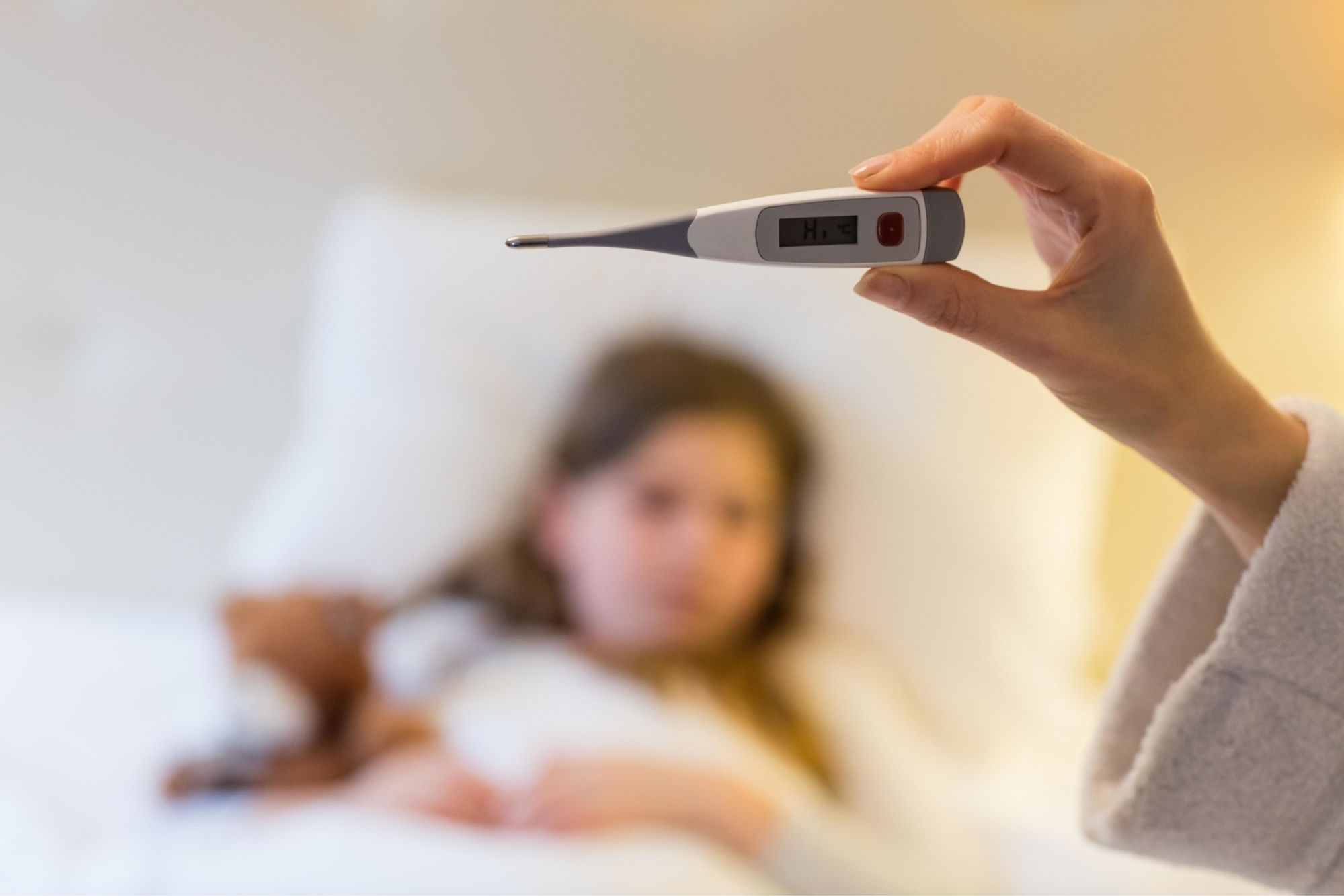
A temporary increase in the body’s temperature is referred to as a fever. Having a fever is mostly a sign of some other disease or infection. More specifically, an individual has a fever if the body temperature goes above 36–37°C (98–100°F).
As you know the normal body temperature is 37°C. Therefore, if the temperature rises, it becomes uncomfortable at times. However, in infants, a minor increase in temperature may indicate a severe infection. Fever generally goes away in a few days. Your doctor may recommend medications to control the condition.
What Causes a Fever?
A fever or an elevated body temperature is caused by a number of conditions. This might vary from person to person. The type of fever (duration and temperature range) sometimes helps in determining its cause better. The following are some of the common causes of fever:
· A virus infection.
· A bacterial infection.
· Heat exhaustion.
· Inflammatory conditions like rheumatoid arthritis.
· A cancer tumor.
· Medications for high blood pressure or seizures.
· Certain vaccinations.
Does Fever Show any Symptoms?
Depending upon what causes fever, there can be certain symptoms. The most common symptoms are listed below.
· Sweating
· Chills and shivering
· Headache
· Muscle aches
· Loss of appetite
· Irritability
· Dehydration
· General weakness
What to Look for?
Suspecting a fever can enable you to get the right treatment. Usually, the normal body temperature varies as per the time of the day. It tends to be slightly lower in the morning and higher in the evening. There are other factors too that can affect the temperature of your body including the menstrual cycle in women and vigorous exercise.
To check the temperature of your body, use a thermometer. If your temperature range goes above 98–100°F, you must consult your doctor. And, if the condition doesn’t resolve in a few days, your doctor might prescribe a blood test to look out for infections.
How Can I Treat Fever at Home?
Treatment of fever depends highly upon its severity. A low-grade fever with zero symptoms may not be a concern. One should drink fluids to cope with fever, firstly.
However, when a fever is accompanied by other symptoms, you can treat it by:
· Staying in a well-ventilated room, where the temperature is comfortable.
· Taking a bath or sponge bath with lukewarm water.
· Administering acetaminophen or ibuprofen.
· Drinking plenty of fluids.
When to Consult a Doctor?
Doctors classify fevers as per their severity, duration, and accompanying symptoms. In fact, you can pre-judge these factors on your own.
Your fever can be:
· Acute- lasting for less than 7 days.
· Subacute- lasting for 7 to 14 days.
· Chronic/persistent- lasting for more than 14 days.
Some experts consider a body temperature of 100.4° F (38°C) to be a fever in adults, whereas a body temperature of 99.5°F (37.5°C) in children. Fever in children with even mild complications should not be ignored.
Consult a doctor right away:
· If prescription medications like paracetamol don’t work in your case.
· If your fever doesn’t go away in a few days.
· If you experience other symptoms like nausea, cough, cold, or dizziness also.
When is Fever a Medical Emergency?
In adults, fever may not be a medical emergency. However, in children, it is important to look out for medical help if any of the following symptoms are experienced:
· Inconsolable crying.
· Hallucinations.
· Seizures.
· Chest pain.
· Trouble breathing.
· An inability to walk.
How Can a Fever be Prevented?
To prevent fever, it is important to prevent the cause of fever- infections.
· Wash your hands properly using soap and water for at least 15 seconds.
· Use hand sanitizer that contains 60% or above alcohol at places where soap and water are not available.
· Do not touch your face randomly. Instead, wash your hands before touching your face.
· As per the situation of the pandemic, do not come in close contact with people in public places.
· Clean and disinfect your surroundings regularly.
· Cover your face using a cloth or other masks.
· Avoid sharing cups and water bottles with people who have an infection.
· Make sure to cover your mouth and nose properly when you cough or sneeze.


